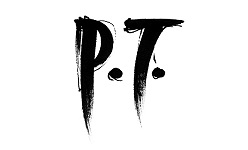Healthcare
Merck sues HHS over drug negotiation, claims program ‘tantamount to extortion’

[ad_1]
The New Jersey-based company is asking the U.S. District Court for the District of Columbia for an injunction to stop the rules from going into effect over the next several months.
“Because this statute unlawfully impairs our core purpose of engaging in innovative research that saves and improves lives, Merck intends to litigate this matter all the way to the U.S. Supreme Court if necessary,” Robert Josephson, a Merck spokesperson, said in a statement.
The White House, HHS and CMS did not immediately respond to a request for comment on the lawsuit.
At issue are the requirements surrounding the Inflation Reduction Act’s negotiation process, in which CMS will negotiate what Medicare pays for 10 widely used, high-priced drugs with no generic competition.
Merck, in its complaint, said the negotiations and the stipulated minimum discounts drugmakers are forced to provide lest they incur a massive tax, run afoul of the Fifth Amendment’s takings clause, which requires the government provide “just compensation” for property taken for public use.
“The IRA wields the threat of crippling penalties to force manufacturers to transfer their patented pharmaceutical products to Medicare beneficiaries, for public use. And the [Inflation Reduction] Act costumes these seizures as ‘sales’ by forcing manufacturers to accept Government-dictated payments that represent a fraction of the drugs’ fair value. By definition — and by design — that is not ‘just compensation,’” the company claimed in its suit.
Merck also argued that, by participating in what it calls “sham negotiations and agreements,” its freedom of speech is being stifled.
“Conscripting companies to legitimize government extortion is the sort of parroted orthodoxy that the First Amendment’s compelled-speech doctrine forbids,” the suit said.
Further, the company told the court that the government is stopping Merck from engaging in “counterspeech” about the negotiations following guidance CMS issued in March that prohibits companies from publicly disclosing “any information exchanged verbally during the negotiation period.”
“The IRA uses severe penalties to requisition medicines while refusing to pay their fair value — and then coerces manufacturers to smile, play along, and pretend it is all part of a ‘fair’ and voluntary exchange,” the suit alleges.
The timing is important: CMS is slated to release a list of the first 10 drugs for negotiation on Sept. 1 — less than three months away. Merck’s widely prescribed blood sugar medicine Januvia is likely to be among the medicines chosen. The company said it expects its cancer drug Keytruda and Janumet, a diabetes treatment, will be selected in future rounds.
[ad_2]
Source link
-

 Culture2 years ago
Culture2 years agoLocal Hero: Why the iconic Scottish environmental film was decades ahead of its time
-

 Entertainment1 year ago
Entertainment1 year agoOscar winner Cuba Gooding Jr. settles civil sex abuse case, averting trial
-

 Politics1 year ago
Politics1 year agoHouse GOP tees up contempt vote for FBI director as Biden probe heats up
-

 2 years ago
2 years agoJohn Paul Brammer Memoir ‘Hola Papi’ Optioned by Funny Or Die
-
Sport2 years ago
Manhattan driver who killed pedestrian had been drinking all day: prosecutors
-

 Lifestyle2 years ago
Lifestyle2 years ago‘Why aren’t there as many flies these days?’ and other excellent Telegraph readers’ questions
-
Culture6 years ago
Musical notes: how male pop stars are making love songs all about them
-

 Entertainment6 years ago
Entertainment6 years agoRip Taylor, confetti-throwing comic and TV host, dead at 84, publicist says




















